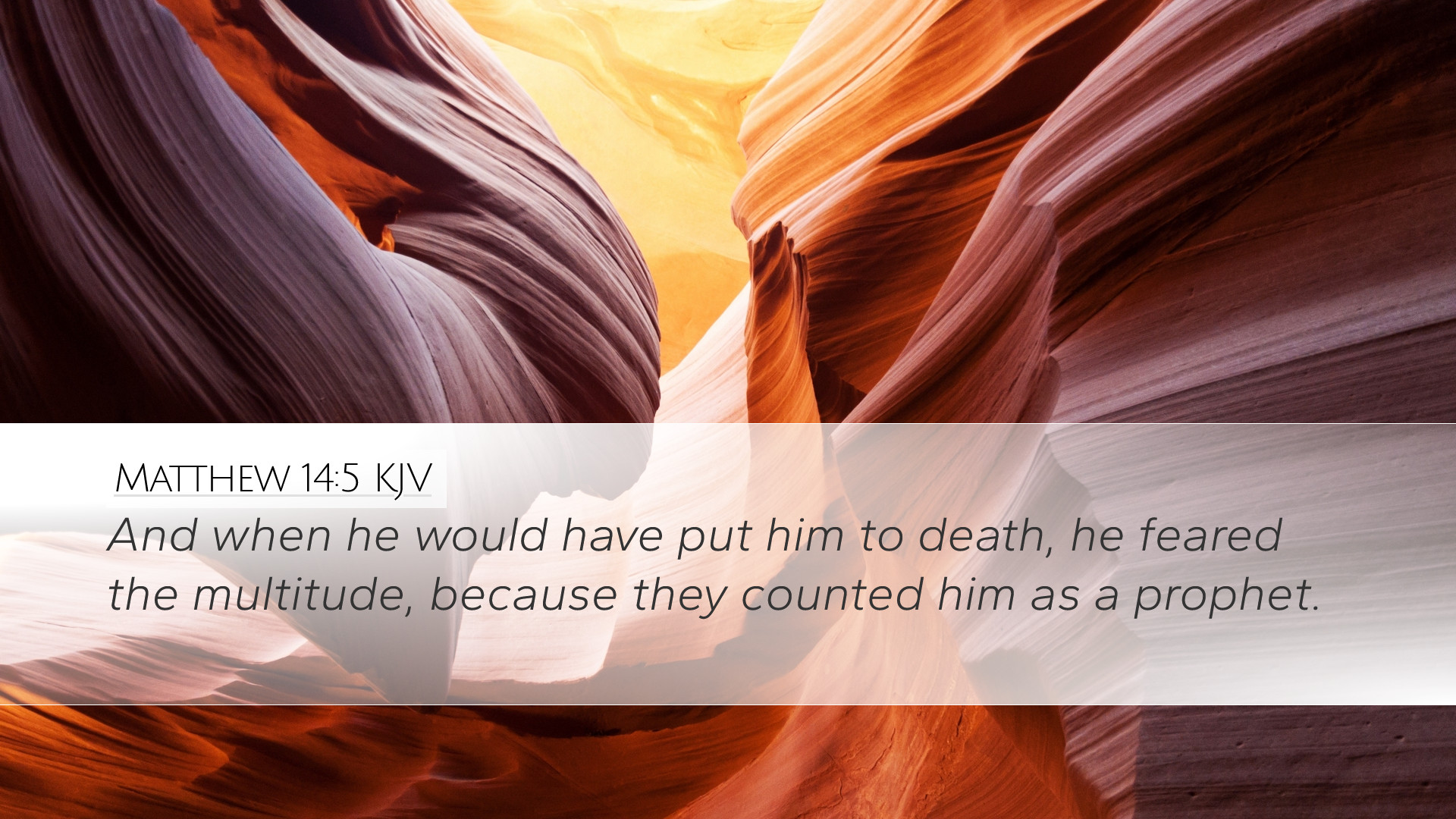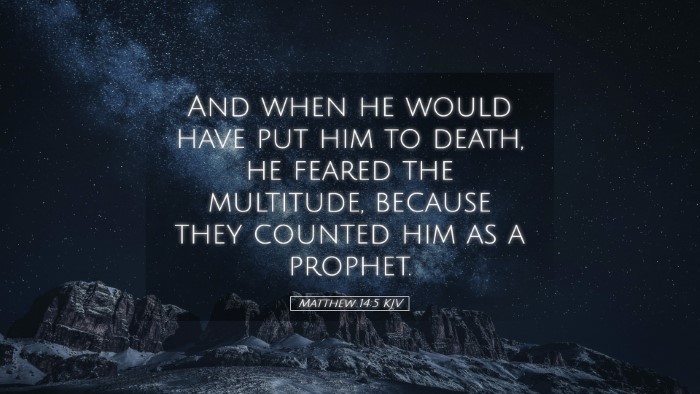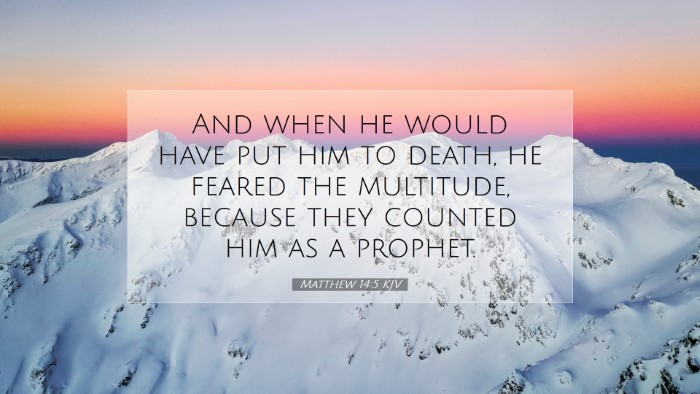Commentary on Matthew 14:5
Matthew 14:5 states: "And when he would have put him to death, he feared the multitude, because they counted him as a prophet." This verse encapsulates the tension between political power and prophetic authority, illustrating the complex dynamics of Herod's character and decisions in the face of public opinion.
Historical Context
The backdrop of this narrative is set against the political landscape of the time, where King Herod Antipas governed Galilee. He was a tetrarch known for his tumultuous reign and moral failings, particularly concerning his marriage to Herodias, his brother's former wife. His decision to imprison John the Baptist stemmed from a combination of personal animosity and political fear, showcasing a leader torn between desire and restraint.
Insight from Matthew Henry
According to Matthew Henry, this verse highlights Herod's internal conflict. Henry observes that while Herod had a desire to silence John the Baptist permanently, he was simultaneously paralyzed by fear of the people's reaction. The multitudes viewed John as a prophet, creating a powerful dynamic where Herod's actions were constrained by public sentiment.
- Fear of Man vs. Fear of God: Henry draws attention to the biblical principle that fearing God should prevail over the fear of man. Herod’s fear of the multitude illustrates how earthly rulers can be moved by public opinion rather than divine authority.
- Popularity of Prophets: John’s role as a prophet resonated deeply with the people, making Herod's decision to execute him fraught with danger. The people’s loyalty to John exposed Herod's vulnerability.
Insight from Albert Barnes
Albert Barnes provides a detailed analysis of Herod's motives and the implications of his fears. He notes that Herod’s admiration for John—viewing him as a "just and holy man"—further complicates the narrative. Barnes presents several key observations:
- Herod's Dilemma: He was caught in a vice between his desire to appease Herodias and his respect for John the Baptist. Barnes suggests that this illustrates the precarious position of political leaders who must navigate personal ethics and public opinion.
- Prophetic Authority: The verse underscores the power of prophetic voices in society. Despite John's imprisonment, his influence remained potent, highlighting the divine authority granted to prophets.
Insight from Adam Clarke
Adam Clarke focuses on the psychological and moral dimensions of Herod's character. He argues that Herod’s fear is emblematic of a conscience burdened by guilt and recognition of justice.
- Internal Conflict: Clarke points out that Herod recognized John’s righteousness, yet prioritized political survival over moral integrity. This illustrates a common struggle faced by individuals in power who must weigh their decisions’ ethical implications.
- Public Sentiment: The fear of the multitude reflects how public opinion can shape political decisions. Clarke suggests that leaders must be wary of sacrificing moral convictions for the sake of popularity.
Theological Implications
The hesitation shown by Herod serves as a poignant lesson regarding the nature of authority and the prophetic voice. The fear of losing popular support can lead leaders to defer necessary actions that align with divine justice. This verse encourages reflection on how contemporary leaders wrestle with similar dynamics.
Applications for Modern Readers
For pastors, students, and theologians, this verse and its commentary offer profound insights for reflection and application:
- Leadership Accountability: Leaders must recognize the weight of their decisions and the moral responsibilities tied to their roles.
- Courage to Uphold Truth: Like John the Baptist, believers are called to be bold voices of truth, even in the face of opposition.
- Understanding Public Opinion: While not all public sentiment is wise, it is essential for leaders to discern when to heed or challenge such opinions.
Conclusion
Matthew 14:5 acts as a vivid reminder of the eternal struggle between divine mandate and human authority. The reflections from Matthew Henry, Albert Barnes, and Adam Clarke provide a multi-dimensional understanding of the text, inviting readers to engage deeply with the implications of leadership, fear, and the voice of the prophet in society.


